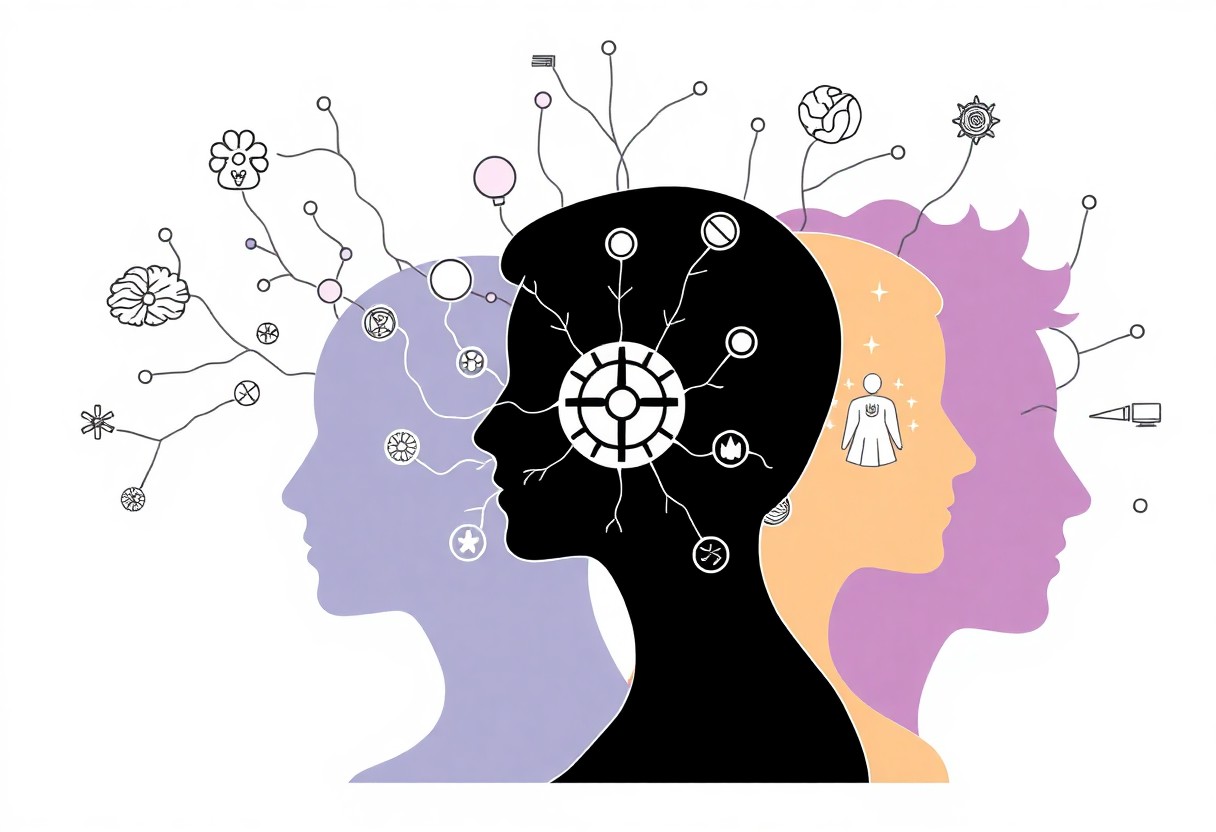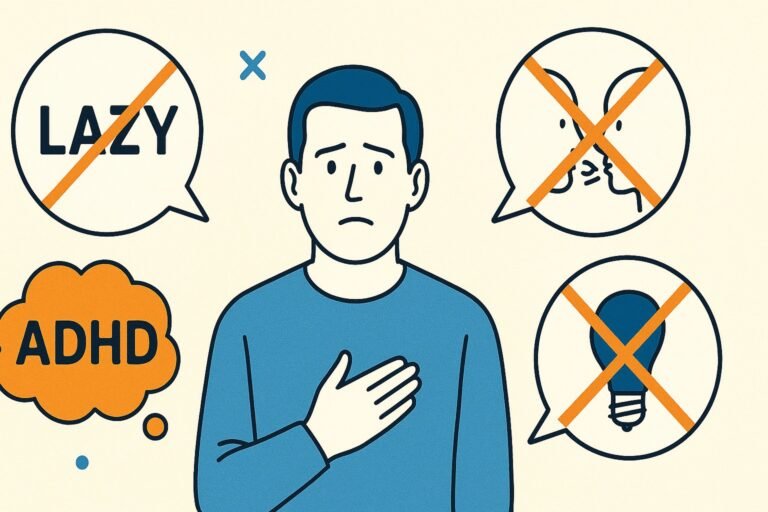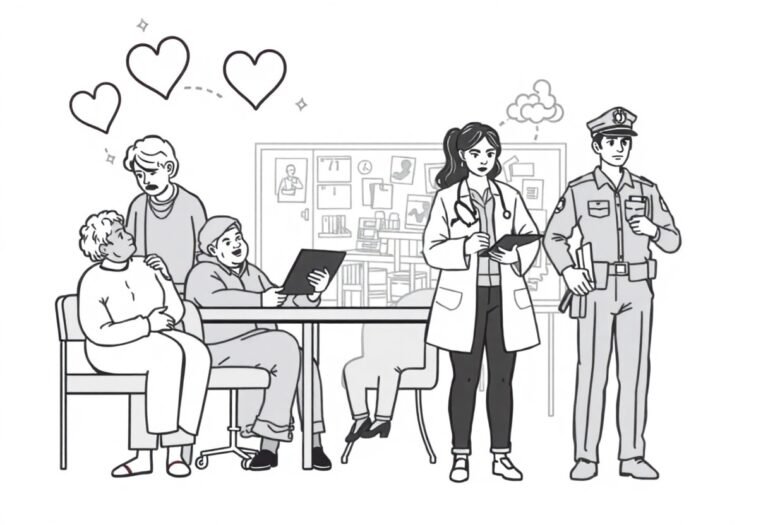Mental Health Conditions
It’s necessary to understand that mental health conditions affect millions of people, and they can significantly impact your daily life. Anxiety, depression, and PTSD are just a few examples of mental health conditions that can disrupt your well-being. Each condition carries unique symptoms and requires tailored treatment options, ranging from therapy to medication. By increasing your awareness and knowledge about mental health conditions, you can better support yourself or your loved ones in navigating the challenges of mental health.
Key Takeaways:
- Mental health conditions encompass a wide range of disorders, including anxiety, depression, bipolar disorder, schizophrenia, PTSD, OCD, eating disorders, ADHD, and personality disorders.
- Anxiety disorders are characterized by excessive worry or fear, and can significantly impact daily life, but effective treatments such as therapy and medication are available.
- Depression rates in the UK are on the rise, often influenced by factors such as social media, economic challenges, and awareness of mental health issues.
- Bipolar disorder involves alternating periods of high energy and mood swings, necessitating comprehensive treatment approaches for effective management.
- Living with conditions like schizophrenia or PTSD can be complex and often involves a combination of personal experiences and professional support to improve quality of life.
Overview of Mental Health Conditions
Your mental health is an integral part of your overall well-being, encompassing emotional, psychological, and social factors. Understanding mental health conditions can help you recognize their symptoms and seek appropriate treatment. With a range of disorders such as anxiety, depression, and bipolar disorder, it’s important to stay informed about their impacts and available resources.
Definition and Importance
On a fundamental level, mental health conditions are diagnosed disorders that affect how you think, feel, and behave. They may also impact your ability to cope with stress, relate to others, and make choices, emphasizing the need for awareness and understanding in tackling these issues.
Prevalence and Impact on Society
An increasing number of individuals are affected by mental health conditions in the UK, with rates of anxiety and depression rising significantly. This not only impacts your personal life but also places a substantial burden on healthcare systems and workplaces.
Conditions such as anxiety disorders and depression are among the most common mental health issues, affecting over 1 in 4 people in the UK annually. The societal impact is profound, as these disorders contribute to absenteeism and decreased productivity in the workplace. Additionally, untreated mental health conditions can lead to more severe outcomes, including self-harm and suicidal thoughts, highlighting the urgency for effective strategies and support systems. Understanding these statistics can empower you to advocate for better mental health initiatives in your community.
Anxiety Disorders
Some individuals experience overwhelming feelings of fear, worry, and apprehension that can significantly disrupt daily life. Anxiety disorders encompass various conditions characterized by heightened anxiety levels that persist over time. It’s vital to recognize the symptoms and seek help, as understanding anxiety can lead to effective management strategies.
Types of Anxiety Disorders
- Generalized Anxiety Disorder (GAD): Chronic worry across multiple areas of life.
- Panic Disorder: Recurrent unexpected panic attacks.
- Social Anxiety Disorder: Intense fear of social situations.
- Specific Phobias: Extreme fear of a particular object or situation.
- Obsessive-Compulsive Disorder (OCD): Repetitive, intrusive thoughts and behaviors.
After identifying the type of anxiety disorder you may face, it becomes easier to explore suitable treatment options.
| Disorders | Focus |
| Generalized | Worry and tension |
| Panic | Fear of panic attacks |
| Social | Interaction anxiety |
| Specific Phobias | Fear of specific objects |
| OCD | Obsessive thoughts |
Treatment Approaches
Any effective treatment for anxiety disorders combines therapy and, in some cases, medication. Cognitive Behavioral Therapy (CBT) has proven particularly effective, helping you to challenge negative thought patterns and behaviors. Additionally, medications such as antidepressants or anti-anxiety drugs can alleviate symptoms. However, consulting with a healthcare professional to tailor a plan suited to your needs is vital.
Indeed, understanding your unique triggers is vital for effective management. Therapy can empower you to address and reframe fears, while medication may offer immediate relief from severe symptoms. Engaging in support groups or mindfulness practices can also enhance your coping skills. Combining these strategies increases your chances of achieving a balanced and fulfilling life despite the challenges of anxiety disorders.
Depression
For many in the UK, depression has become a prevalent mental health condition, affecting millions and often leading to significant impairments in daily life. As one of the most common mental health disorders, it manifests through various emotional and physical symptoms, creating challenges for individuals seeking to maintain their well-being.
Symptoms and Diagnosis
Beside feelings of persistent sadness and hopelessness, you may experience changes in appetite, sleep disturbances, and loss of interest in activities you once enjoyed. Diagnosing depression involves a thorough evaluation by a healthcare professional, taking into account your symptoms, duration, and overall functioning.
Treatment and Support Options
To effectively manage depression, you can explore several treatment options, including therapy, medication, or a combination of both. Support groups and lifestyle changes, such as exercise and improved nutrition, can also play valuable roles in your recovery process.
Understanding treatment options is necessary as each person responds differently. Cognitive-behavioral therapy (CBT) has shown success in reshaping thought patterns, while antidepressants can help balance brain chemicals. Engaging in support groups can provide a sense of community, making you feel less isolated. Lifestyle changes—like regular exercise and maintaining a healthy diet—are beneficial in improving mood and overall mental health. It’s important to communicate openly with your healthcare provider to tailor a plan that best fits your needs.
Bipolar Disorder
To understand bipolar disorder, it’s important to recognize that it involves extreme mood swings, including emotional highs (mania or hypomania) and lows (depression). These episodes can disrupt your daily life, impacting relationships and work. In the UK, many individuals face challenges in managing this condition, but with the right support and treatment, you can lead a fulfilling life.
Understanding the Manic and Depressive Episodes
To effectively manage bipolar disorder, you must first recognize the symptoms of manic and depressive episodes. During a manic phase, you might feel elated, full of energy, and overly confident, while depressive episodes can leave you feeling hopeless, fatigued, and disinterested in daily activities. Understanding these patterns is imperative in seeking timely help.
Long-term Management Strategies
Longterm management of bipolar disorder involves a comprehensive approach, including medication, therapy, and lifestyle adjustments. You may benefit from mood stabilizers and antidepressants, while regular counseling can assist in processing emotions and developing coping strategies.
Consequently, engaging in a structured routine can help manage your condition effectively. Prioritizing consistent sleep, nutrition, and exercise plays a transformative role in stabilizing your mood. Additionally, using self-monitoring techniques like mood tracking can alert you to early signs of mood shifts. Building a support network of friends, family, or support groups can provide the encouragement you need to stay grounded. Regular check-ins with your healthcare provider ensure that your treatment plan remains effective and responsive to your circumstances.

Schizophrenia
Unlike what many believe, schizophrenia is not just about hallucinations and delusions. It is a complex mental health condition that affects how you think, feel, and behave. Understanding this disorder is vital for dispelling myths and reducing stigma, as those living with schizophrenia may experience a range of symptoms that impact their daily lives.
Symptoms and Misconceptions
Alongside common symptoms like hallucinations and disorganized thinking, many misconceptions exist about schizophrenia. You might associate it only with violent behavior, but in reality, people with schizophrenia are more likely to be victims of violence than perpetrators. Educating yourself about the breadth of symptoms can foster compassion and understanding.
Treatment and Recovery
An effective treatment plan for schizophrenia often includes a combination of therapy, medication, and support. While the path to recovery may be challenging, you can achieve significant improvements in your quality of life.
And finding the right balance of treatment is necessary for your recovery journey. You might start with antipsychotic medications to manage symptoms, along with cognitive behavioral therapy (CBT) to cope with day-to-day challenges. Support groups and community resources can also provide a sense of belonging, reminding you that you’re not alone in your experience. With the right support, many individuals with schizophrenia lead fulfilling lives, emphasizing the importance of early intervention and personalized care.
Obsessive-Compulsive Disorder (OCD)
Now, OCD is a misunderstood mental health condition affecting individuals across the UK, transcending mere concerns about cleanliness. It can disrupt daily life and cause significant distress, with many seeking clarity on its symptoms and effective treatments. Understanding OCD helps you recognize its complexities beyond stereotypes.
Understanding OCD Beyond Cleanliness
Beyond your typical associations with tidiness, OCD encompasses a range of intrusive thoughts and repetitive behaviors that can manifest in various ways. Many people with OCD experience compulsions aimed at alleviating anxiety caused by obsessions, such as fears around harm, contamination, or relationships. This spectrum of symptoms can lead to overwhelming distress and impairment in daily functioning.
Effective Treatment Methods
Before you can effectively manage OCD, it’s important to explore the available treatment options tailored to your needs.
Indeed, treatment for OCD typically includes a combination of Cognitive Behavioral Therapy (CBT), particularly Exposure and Response Prevention (ERP), and medication like Selective Serotonin Reuptake Inhibitors (SSRIs). CBT empowers you to confront your fears, while ERP gradually exposes you to anxiety-inducing situations without engaging in compulsions. Medication can help balance serotonin levels, providing added relief from symptoms. With the right approach, you can significantly improve your quality of life and gain control over your OCD.
Summing up
With these considerations, it’s clear that mental health conditions encompass a wide spectrum of challenges that can affect anyone at any time. Understanding the symptoms and available treatment options is vital for you to advocate for your wellbeing or support others navigating their mental health journey. By acknowledging issues like anxiety, depression, bipolar disorder, and PTSD, you can foster a more compassionate dialogue and contribute to a society that prioritizes mental health awareness and support.
FAQ
Q: What are the common symptoms of anxiety disorders?
A: Anxiety disorders can manifest through a variety of symptoms including persistent worry, restlessness, fatigue, difficulty concentrating, irritability, muscle tension, and sleep disturbances. Physical symptoms may also include increased heart rate, sweating, trembling, and gastrointestinal issues. The severity and type of symptoms can vary widely between individuals, and some may experience panic attacks characterized by overwhelming fear and physical discomfort.
Q: How are depression and anxiety linked?
A: Depression and anxiety are often interconnected mental health issues. Many individuals experiencing depression may also suffer from anxiety, and vice versa. This comorbidity can worsen the severity of each condition, leading to increased feelings of hopelessness, stress, and emotional distress. Both conditions share similar risk factors, including genetic predisposition, environmental stressors, and certain personality traits, making it necessary for treatment to address both disorders concurrently when they occur together.
Q: What treatment options are available for bipolar disorder?
A: Treatment for bipolar disorder typically involves a combination of medication and psychotherapy. Medications such as mood stabilizers, antipsychotics, and antidepressants are commonly prescribed to help manage mood swings. Psychotherapy, including cognitive behavioral therapy (CBT) and family therapy, can provide support and coping strategies for individuals and their loved ones. Lifestyle changes, including maintaining a routine, regular exercise, and stress management techniques, are also beneficial in promoting stability.
Q: How can I support someone with schizophrenia?
A: Supporting someone with schizophrenia involves understanding their condition and being patient with them. Encourage them to stick to their treatment plan and attend therapy sessions. Active listening is critical; let them express their feelings without judgment. Participate in supportive activities together, which may include outings or hobbies they enjoy. Educating yourself about the condition can also help you provide informed support while fostering a safe and open environment for communication.
Q: What role does technology play in mental health disorders?
A: Technology can have both positive and negative impacts on mental health disorders. Online resources, apps, and teletherapy options can improve access to mental health support and information. However, excessive use of social media and digital platforms can exacerbate conditions such as anxiety, depression, and body image issues, particularly among young people. It’s necessary to strike a balance and use technology as a tool for support while being mindful of its potential negative effects on mental well-being.







